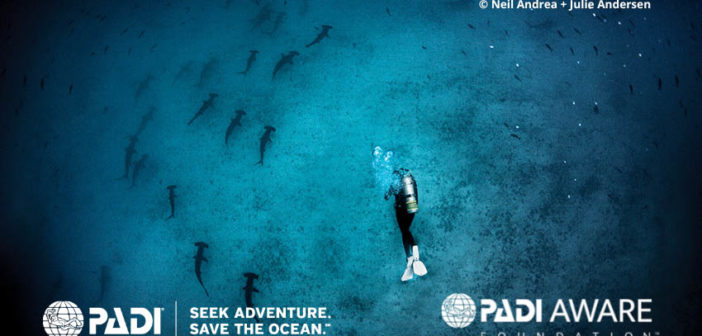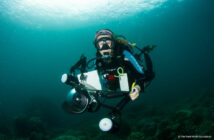Scuba divers rally to protect an unprecedented 60 threatened species
PADI® (Professional Association of Diving Instructors®) is celebrating a major win today in their fight to save sharks. At the 19th meeting of CITES (the Convention on Trade of Endangered Species of Wild Fauna and Flora) in Panama City, government representatives agreed to restrict international trade for all requiem sharks, one of the biggest family of species, all hammerhead sharks, and all guitar sharks adding an extra 60 species to the list of shark species protected by CITES on Appendix II.
This positive outcome follows PADI being asked by the host nation of Panama to provide specialist advice and research to all attending government representatives to help secure support for a critical vote to double the amount of protected shark and ray species. In the lead-up to this important vote, PADI actively mobilized their global community of 128,000 PADI Professionals, 6,600 PADI Dive Centers and Resorts, and the over 29 million certified PADI Divers to take part by urging their own local governments to take action at CITES – and asking all ocean torchbearers (whether a diver or not) who are passionately committed to creating positive ocean change to sign the petition that urged governments to vote “YES”.
“Today’s decision to restrict the unsustainable global trade in some of the most threatened species on the planet provides us all with a hope and optimism that we are not too late to end the dramatic declines in the ocean’s most iconic, and critical, animals,” said Ian Campbell, Associate Director of Policy and Campaigns for the PADI AWARE FoundationTM, which is PADI’s global non-profit.
“The listing of requiem sharks, an iconic group of species that includes diver favorites such as the blacktip reef shark, bull shark and grey reef shark sends a strong signal that healthy populations of these animals are economically important far more than just the trade in their harvested fins, meat and organs.”
Shark tourism generates hundreds of millions of dollars globally, contributing to the economies of countries around the world and supporting hundreds of thousands of jobs. Previous studies of the tourism sector indicate shark-based tourism is on track to generate over three-quarters of a billion dollars a year over the next decade.
With the global pandemic having a significant impact on the economies of island nations such as Fiji, the Maldives and the Bahamas, the growth in shark tourism is likely to play a significant role in the financial recovery of countries with healthy shark populations around the world.
“This result, to limit the international trade in shark species that are found at the world’s most popular dive spots, will bring a huge economic boost to communities across the globe,” says Julio Salvatori, the South America Regional Manager for PADI and technical adviser to the Panamanian government. “The prospect of diving with sharks in their natural environment is a major attraction for the recreational dive sector, many of which made their concerns known to the decision-makers. We are optimistic that this can be a turning point for shark populations worldwide.”
Recent studies have indicated that sharks – and their close relatives the rays – are one of the most threatened groups of animals on the planet. Over a third of all species are classed as facing an increased risk of extinction, mainly due to overfishing, habitat loss and unsustainable trade.
“We commend the strong leadership and commitment to conservation shown by the government of Panama, supported by many others, to secure this much-needed trade restriction,” continues Campbell. We also realize that this decision is only the start of the recovery for many shark species, and the revenue-generating recreational diving sector is primed to play its role in implementing the commitments made today.”
Protecting sharks is a core component of PADI’s Blueprint for Ocean Action, with the established goal of reducing the number of sharks and rays facing extinction by 25% in the next decade. To date, PADI has already helped secure protection measures for 51 species of sharks and rays, with today’s vote more than doubling that number to a total of 105 species.









